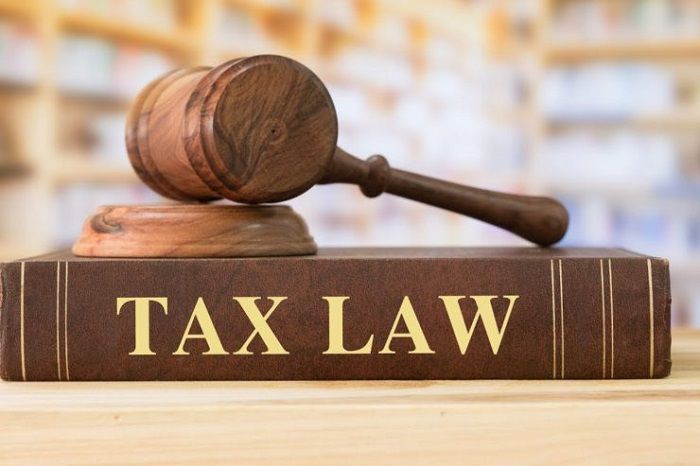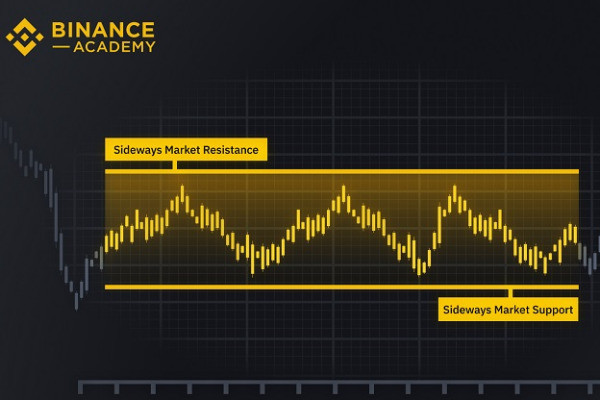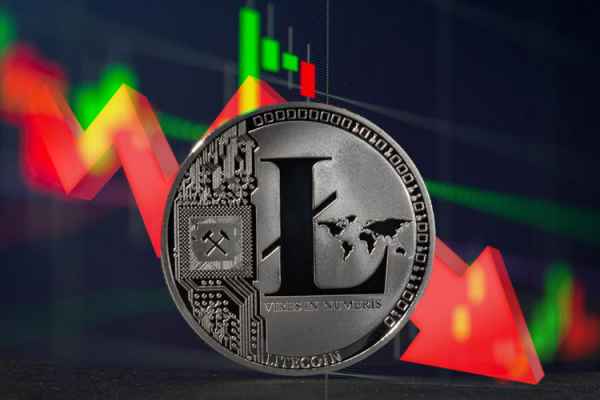While some countries have strict rules regarding Bitcoin tax, some might take a friendly approach. Which country has the best tax law for Bitcoin gain?
Digital gold is on the rage right now. A lot of people invest in Bitcoin and other crypto assets, hoping to gain more profits. While this is true on some level, most of these traders do not consider the Bitcoin tax that might come with it.

Countries have different rules regarding taxes. For example, the USA imposes a tax on Bitcoin gain, while other countries haven't. If you are an aspiring Bitcoin trader, make sure to understand your country's stance on Bitcoin gain.
Bitcoin Tax in the US
Bitcoin classifications as an asset in the US make its tax implications clear. The IRS (Internal Revenue Service) has made it mandatory for all Bitcoin holders to report transactions of all kinds, no matter how small in value. IRS has sent warning letters in July 2019 to more than 10,000 taxpayers that they suspect have failed to report incomes and payments from virtual currency transactions. Every US taxpayer must keep records of buying, selling, investing, and any other transactions of their Bitcoin. Incorrect reporting and other fraudulent acts will result in penalties or even prosecutions.
With the strict regulations to follow, Bitcoin traders in the US should carefully check whether they owe crypto taxes or not. Even when you just HODL it, it's always better to evaluate whether you have been taxed for your Bitcoin investment. Listed below are Bitcoin transactions divided by their taxability:
Taxable Transactions:
- Selling Bitcoin for cash.
- Paying goods or services with Bitcoins or other coins, for example, you buy a new house using Bitcoin.
- Buying crypto with another crypto, like buying Ethereum using Bitcoin or vice versa.
- Receiving crypto through mining.
- Being paid by a crypto airdrop. If your employer paid you in crypto, it will be classified as compensation and will be taxed accordingly.
- Receiving crypto rewards, including staking rewards and earned interests.
Non-Taxable Transactions:
- Donating crypto to a non-profit organization.
- Buying crypto with cash and holding it.
- Transferring crypto between wallets.
Best Countries to Earn Bitcoin
While some countries might implement strict rules regarding Bitcoin tax, there are countries with loose policies and even those that don't impose taxes on Bitcoin at all. Surely this sounds like heaven for Bitcoin enthusiasts. That being said, remember that even in these countries, tax laws are subject to changes.
1. Belarus
In 2018, Belarus took an experimental approach to cryptocurrencies. They created a new law to legalize cryptocurrency activities. They also exempt individuals and businesses involved in crypto-related activities from taxes until 2033, in which they will review whether the system works as they hope or not. Under Belarus law, mining and investing in a crypto product are deemed as personal investments. This is why Bitcoin gain in Belarus isn't subjected to income tax and capital gain.
There are good reasons why Belarus choose to do this. This country aims to boost the development of the digital economy that is on the rage lately. With the rising popularity of cryptocurrency, it's almost impossible not to take it into considerations. Belarus choose to support it and as result, this country has ranked third in Eastern Europe and 19th globally in P2P crypto trading.

2. Singapore
Singapore doesn't apply capital tax gain. This rule applies to individuals and corporations holding cryptocurrency. As such, there is no Bitcoin tax for crypto traders in this country. Yet, there are exceptions for companies based in Singapore, as they are liable to income tax if their core business is cryptocurrency trading or if they accept cryptocurrency as payment. Singapore's government considers payment tokens to be intangible property rather than legal tender. This means payment with cryptocurrency constitutes a "barter trade" where the goods and services are taxed, but not the payment token itself.

3. Slovenia
Slovenia treats individuals and businesses separately in terms of Bitcoin tax. Individuals won't be subjected to any capital gains when they sell Bitcoin, and when they receive gains, it won't be treated as income. Nevertheless, companies that receive payment in cryptocurrencies, or through mining, are required to pay tax at a corporate rate. Token distribution during ICOs (Initial Coin Offerings) is also subject to tax rates of up to 50%. That being said, this country doesn't permit any business operations in cryptocurrency alone.

4. Germany
Another country that doesn't apply Bitcoin tax is Germany. In fact, they have a unique take regarding digital currency. Unlike most countries, Germany regards Bitcoin as private money; not currency, commodity, or stock. Any cryptocurrency held over a year by German residents is tax-exempt, regardless of the amount. If the assets are held under a year, capital gains tax doesn't accrue on a sale, as long as the amount does not exceed 600 euros.

However, the rules above only apply to individuals. A business owner in Germany still needs to pay corporate income taxes, which includes any Bitcoin gains. The same rules also apply to any other asset gain. In 2021, Germany surprisingly takes a different turn as they implement a controversial new tax law that causes massive blows for crypto derivatives trading in Germany.
5. Bermuda
Bermuda is another country with a friendly Bitcoin tax law. It doesn't tax cryptocurrency gains, as the island nation of Bermuda does not impose income, capital gains, withholding, or other taxes on digital assets, or on transactions involving digital assets. Interestingly, residents are now allowed to pay other taxes using digital currency. This rule was implemented in 2019, thus making Bermuda the first government to accept payments for taxes, fees, and other government services using USD Coin (USDC).

6. Switzerland
Switzerland is widely known as a Crypto Valley and has one of the most forward-thinking tax policies too. Cryptocurrency profits made by qualified individuals through investing and trading are treated as tax-exempt capital gains. Income from professional trading, however, will be subjected to income tax. The same rules will be applied for Bitcoin miners, as well as other cryptocurrencies. As a side note, the tax law may differ regionally.

7. Malaysia
Malaysia currently doesn't apply Bitcoin tax for any cryptocurrency transactions. This country doesn't consider cryptocurrencies as assets or legal tender, so the activity of holding them doesn't qualify for capital gains tax. Still, profits from active crypto trading might be treated as revenue and thus considered taxable income. According to Ranjeet Kaur, communications director at the Malaysian Inland Revenue Board (LHDN), active, systemic, and repeated trading is considered a profession. Likewise, any businesses involved in cryptocurrencies are also subjected to income tax.

8. Malta
Malta is often called a Blockchain Island due to its extremely friendly tax rules on cryptocurrencies. In Malta, crypto assets are recognized as a unit of account, medium of exchange, or store of value. As such, the government doesn't apply Bitcoin tax for long-held digital currencies. It should be noted that despite the said policy, crypto trading is considered similar to day trading in stock or shares and will be subjected to Business income tax at the rate of 35%. This can be scaled down to 5% - 0% through "structuring options" available under the Maltese system.

In 2020, Malta came second after Liechtenstein in PwC's Crypto Tax Index. But according to Malta fiscal guidelines in 2018, the government distinguished Bitcoin and other so-called financial tokens; equivalent to dividends, interest, or premiums. The latter are treated as income and taxed at the applicable rate.
See also: List of Brokers Regulated in Malta
9. Portugal
Portugal is considered to have fairly friendly Bitcoin tax regimes. Bitcoin sales by individuals have been tax-exempted since 2018 since it is not considered an investment income. However, the same rules don't apply to businesses that accept digital currencies as payments for goods and other services. In this case, any payment using Bitcoin or other digital currencies will be subjected to income taxes.

After Thought
No country has the exact same policies when it comes to Bitcoin tax. Some might have stricter rules like the US, while others would prefer a more friendly approach towards the matter. No one can't deny that tax liability is a major concern for anyone investing in Bitcoin. Sadly, a lot of traders tend to forget about it when they first enter the digital markets. When trading, mining, or just HODL-ing, it is important to do some research about your local law on cryptocurrency gains. Surely you don't want to end up being fined for tax fraud just because you don't understand the law, right?
Although US tax law about cryptocurrency gain is quite strict, this country has some of the best states to mine Bitcoin. If you are in the States and plan to mine cryptocurrencies, here are the best places to try.

 Dedicated FREE FOREX VPS
Dedicated FREE FOREX VPS Free FOREX Virtual Private Server
Free FOREX Virtual Private Server MT4 Demo Contest, Get $500
MT4 Demo Contest, Get $500 Sign Up for an Account, Claim 60% Deposit Bonus
Sign Up for an Account, Claim 60% Deposit Bonus Free MT4/MT5 VPS 2024
Free MT4/MT5 VPS 2024 Send E-mail and Get Free Merchandise
Send E-mail and Get Free Merchandise $1K Refer a Friend Bonus for Pepperstone Pro clients
$1K Refer a Friend Bonus for Pepperstone Pro clients Maximize Your Earnings with 100% Deposit bonus
Maximize Your Earnings with 100% Deposit bonus Trade to Win, $5,000 Monthly Demo Contest
Trade to Win, $5,000 Monthly Demo Contest Claim 30% + 15% Deposit Bonus from LiteFinance
Claim 30% + 15% Deposit Bonus from LiteFinance






 Bitcoin
Bitcoin Ethereum
Ethereum Tether
Tether BNB
BNB Solana
Solana XRP
XRP USDC
USDC Dogecoin
Dogecoin Toncoin
Toncoin Cardano
Cardano